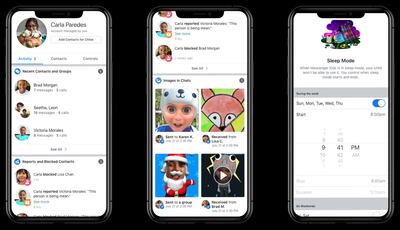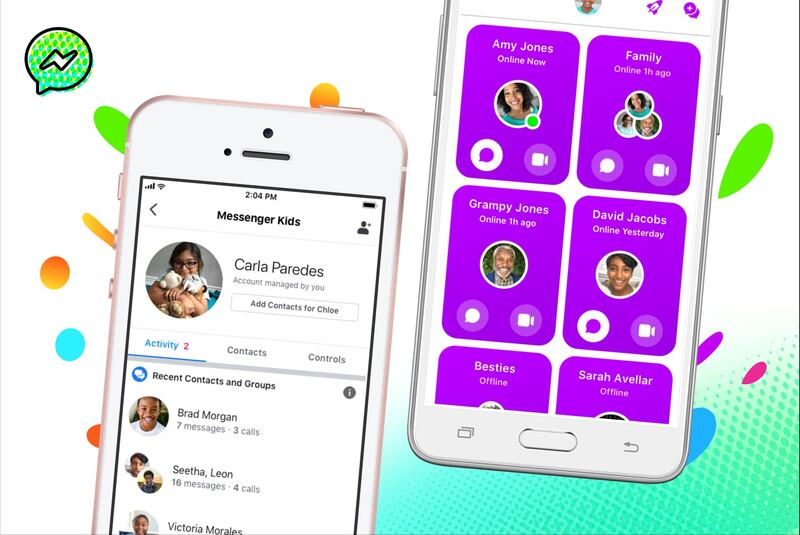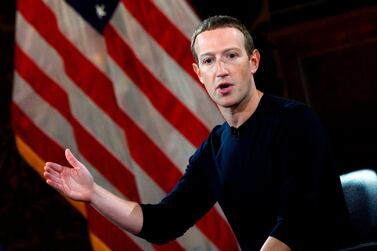Facebook's Messenger Kids app is now available in 20 countries across the Middle East and Africa, in response to the Covid-19 pandemic.
The youth-focused service from the social media giant was launched in the US in 2017, and was in April rolled out to 70 further countries. This is its first foray into the Middle East.
The app is aimed at children under 13 who can't have Facebook accounts, in line with the company's policies. As such, it features parental controls which allow parents to customise the app for their children, including being able to edit and change contact lists and be notified if a child blocks or reports another user.
You asked - we listened. Messenger Kids is starting to roll out to more countries and we’re adding new choices for parents to connect kids with friends. Learn more: https://t.co/u6hQBATeKu #TogetherAtHome pic.twitter.com/RmHBbjEZRZ
— Messenger Kids (@MessengerKids) April 22, 2020
In a statement, the company pointed to its expansion as reflective of people becoming even more reliant on technology during the pandemic.
The app was created in 2017 in conjunction with Facebook’s Youth Advisors, a team of experts in online safety, child development and media, as well as child safety advocates and educators, to "ensure we’re providing a service that balances parental control with features that help kids learn how to connect responsibly online".
The app will roll out on Wednesday, June 10 in the UAE, as well as in Algeria, Bahrain, Egypt, Iran, Iraq, Jordan, Kuwait, Lebanon, Libya, Morocco, Oman, Palestine, Qatar, Saudi Arabia, South Sudan, Sudan, Syria, Tunisia and Yemen.
You can download the app from the App Store and the Google Play Store.
How to use Messenger Kids
Open an account
To use the app, a parent has to set up an account for a child. First, download the app on your child's device. you'll then be asked to authenticate your child's device using your own Facebook username and password. This will not create a Facebook account for your child or give them access to your account. You can then create an account for them and add people to their contact list.
From there, children can start a one-on-one or group video chat. The home screen shows them who they are connected to, and when those contacts are online.

Parent Dashboard
Parents can control and monitor their child’s activity in the app through the Parent Dashboard, located in the parent’s main Facebook app.
Through the Parent Dashboard, parents can monitor everything from recent contacts to chat history and reported and blocked contacts. They can also see a log of images and videos, set "sleep mode", which limits the amount of time your child can spend on the app, and enable "supervised friending", which gives them more control over the child's contacts.
Through the dashboard, parents can also see all the devices on which your child is logged into Messenger Kids, and you can even log out your child from afar, as well as being able to request a copy of your child’s Messenger Kids information, similar to how you can download your own information within the Facebook app.
Using the app
In addition to video chat, children can send photos, videos or text messages to their contacts in the app. There is even a library of kid-appropriate and specially chosen gifs, frames, stickers, masks, sound effects, masks, emojis and drawing tools.
Are there privacy concerns to be aware of with Messenger Kids?
The app has copped some backlash in the past for its online safety practices.
On its website, Facebook acknowledges in its Messenger Kids Privacy Policy that it collects information such as children's names, usernames, passwords, and the messages they share between each other.
The company says it does so to enhance users' experience and user privacy, "including to help verify accounts and activity, and to look into suspicious activity or violations of our terms or policies".
But last year, problems arose when a glitch enabled children to conduct group chats with others who were not approved by their parents. An open letter on the issue made it to the US Congress, with senators urging the social media giant to upgrade its security practises.
Privacy concerns around Messenger Kids were also part of the issues associated with a $5 billion (Dh18.36bn) fine handed to Facebook by the Federal Trade Commission in July 2019 over abusing its users personal data.
Facebook also came under fire in 2018 for violating the Children's Online Privacy Protection Act, as it was collecting the personal information of children without parental consent. In a response, Facebook said it doesn't collect information for ad purposes.






